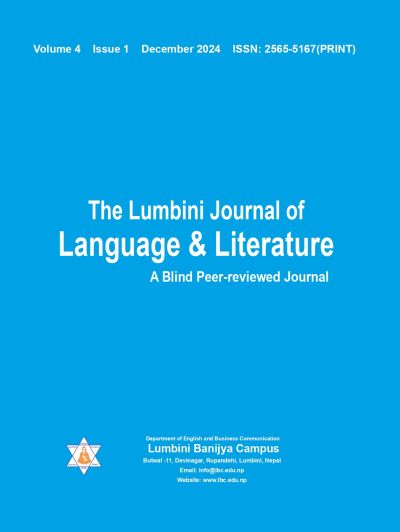Ecofeminist Reading of Balakrishna Sama’s Don’t Cut down the Trees, Brother Woodcutter
DOI:
https://doi.org/10.3126/ljll.v4i1.73919Keywords:
Interconnection, nature and women, ecofeminism, patriarchal viewpointAbstract
Balakrishna Sama’s poem, Don’t Cut down the Trees, Brother Woodcutter, presents a compelling, environmental concern with socio-cultural reflections. This paper employs an ecofeminist perspective to analyze the poem, exploring the intricate connections between gender and nature. Ecofeminism, as a theoretical framework, posits that the oppression of women and the exploitation of nature are deeply interconnected and rooted in patriarchal structures. The analysis delves into the portrayal of nature as a feminine entity in the poem, drawing parallels between the exploitation of women and the exploitation of the environment. Through characters such as the Woodcutter and the trees personifying as dead mothers, the poem illustrates how patriarchal attitudes manifest in the destruction of nature, echoing the subjugation of women. Furthermore, the ecofeminist perspective unveils the significance of women as agency in environmental activism. Characters like the mother and the trees symbolize the resistance against ecological destruction, emphasizing the vital role of mothers in nurturing and protecting the environment. By intertwining environmental and gender concerns, Don’t Cut down the Trees, Brother Woodcutter underscores the need for a paradigm shift towards a more equitable and sustainable relationship with nature. This ecofeminist reading sheds light on the complex interplay between gender and nature in Balakrishna Sama’s poem, offering insights into how literature can contribute to broader conversations about environmental justice and gender equality.
Downloads
Downloads
Published
How to Cite
Issue
Section
License
The copyright for articles published in journal are retained by the authors with first publications right granted to the journal.




